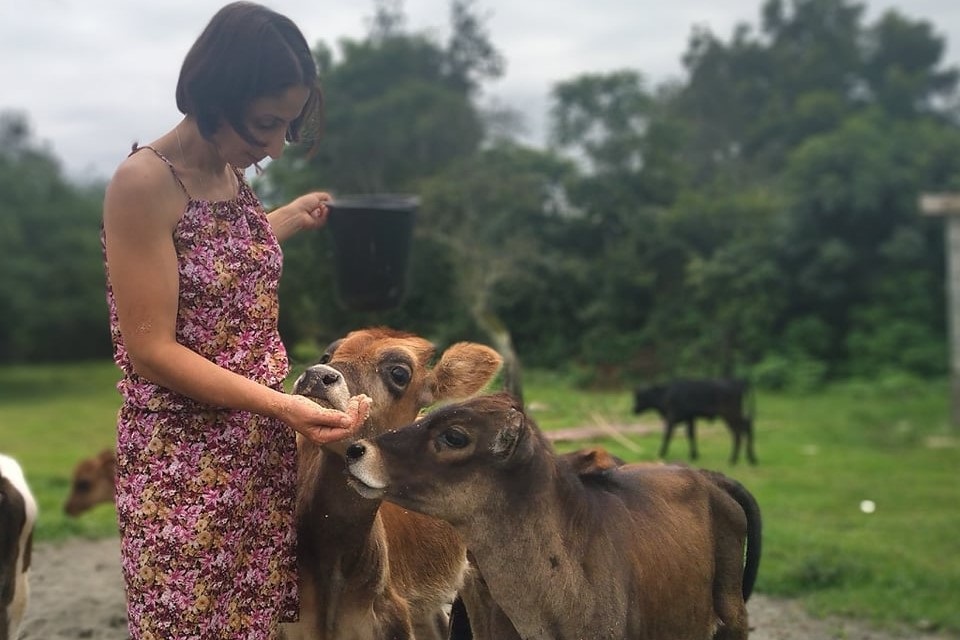Farmer field schools for women’s economic empowerment
Date:

Natia Ghurtskaia, 38, lives in the village of Kakhati in Zugdidi Municipality with her husband and three children. She works as a mentor and teacher and also runs a small cow farm.
“In the beginning, I had only one cow,” Natia says. “Unfortunately, a car hit it and I had to raise its newborn calf like a small baby, feeding it on artificial food. After this accident, I gradually expanded my business, and today I already have 11 milk cows.”
The young farmer produces Georgian traditional dairy products: sulguni, Megrelian cheese, matsoni (a special kind of Georgian yoghurt) and nadughi (a traditional product resulting from souring milk). At the same time, she is constantly striving to make her own high-quality products, for which she is now deepening her knowledge about dairy production by attending a farmer field school.
The training platform “The Farmer Field School” is part of a joint project between UN Women and the Food and Agriculture Organization of the United Nations (FAO) called “Empowering Women Economically through the Farmer Field School Approach”. It has been operating in the Samegrelo-Zemo Svaneti region for six months now, and its aim is to establish a network of women farmers who have strengthened their abilities and skills through training.
As a result of this platform, the women farmers are acquiring knowledge in the sphere of safety and international food standards, as well as studying modern technologies in cheese production. In addition, they are taking a course on business start-ups at the Academy of the Ministry of Finance, through which they are strengthening their entrepreneurship, leadership and management skills.
Natia Ghurtskaia has already passed trainings on leadership, starting a business and preparing investment proposals, and she has also attended trainings of trainers. “With the help of this school, I have seen myself from a different angle: I have become more self-confident and purposeful,” she says. “After its completion, I will try to promote and share my knowledge and experience with those women entrepreneurs who are just starting to take the first steps now.” Natia plans to further expand her activities in the future: “First of all, I want to create a milk collection point, which does not exist in Kakhati or in any nearby villages. Then I am going to open a cheese production factory, to prepare different types of cheese and to employ the women I became acquainted with in the farmers’ school.”
A total of 20 field schools will be established in five municipalities within the project. Currently, 10 of them are already functioning in Abasha, Tsalenjikha and Zugdidi municipalities, uniting 40 women farmers. During the first stage, a total of 122 women will be trained, while the project envisages training 1,000 farmers in all. It should be noted that the UN Women component also intends to raise awareness among participants about women’s rights and domestic violence.
The project “Promoting the Economic Empowerment of Women Farmers by Supporting Dairy Production through the Farmer Field School (FFS) Approach” is funded by the Swiss Agency for Development and Cooperation.